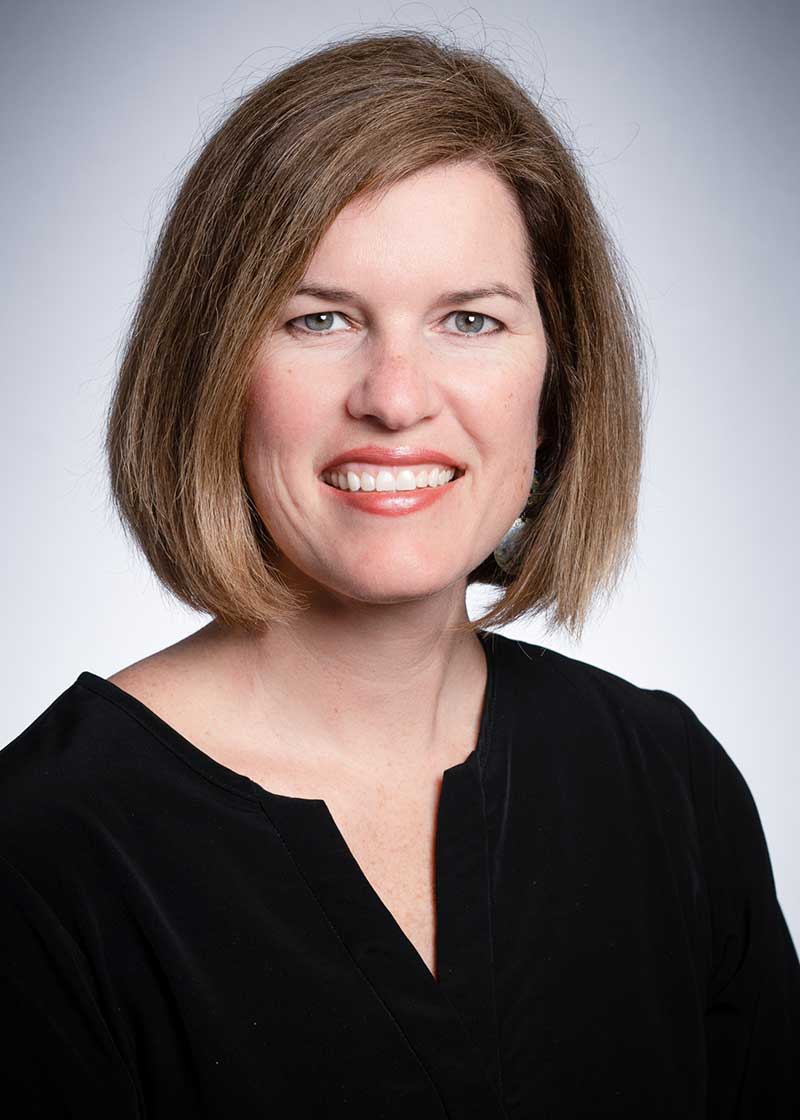What brought you to UAB and why public health?
I first joined UAB in 2004 for my PhD and then as faculty in 2011. I loved the idea of leveraging population health to ultimately inform individual level health. I also had always been fascinated by genes and inherited causes of both rare and common diseases. From the outset, my professional goals focused on leveraging genetic markers to inform personalized medicine.
What is your educational background?
I completed my Bachelor’s in Biology at the University of North Carolina - Chapel Hill. My first job out of college was as a research coordinator for a national patient registry for individuals with a rare genetic form of COPD, Alpha-1 Antitrypsin Deficiency. That's where I developed a passion for biostatistics and decided to pursue a Master's in Health and Medical Biostatistics from the Medical University of South Carolina. Shortly afterwards, I came to UAB where I completed my PhD in Epidemiology and a Fellowship in Biostatistics.
What is the broad focus of your research?
The broad focus of my research is on utilizing genes, groups of genes, and variants from the whole genome to better understand risk for cardiovascular disease (CVD), renal disease, and response to CVD medications.
Most prized professional accomplishment?
The R35 award is an amazing honor and culmination of cardiorenal genomic and pharmacogenic work that our genetic epidemiology team has been engaged in for several years. I am also always proud of mentees and their accomplishments. For example, Alana Jones received an F31 last year for her dissertation work and Nikki Armstrong recently gave a platform presentation at the American Heart Association EPI|Lifestyle meeting in Chicago.
Coolest conference you have been to?
My personal favorite is the annual American Heart Association EPI|Lifestyle Scientific Session. They have the absolute best poster sessions! Everyone, from trainees to established investigators, gets a drink and engages in some serious academic discussion. It is very helpful for presenters and is a great opportunity for networking.
The most exciting project you are working on right now is...?
I have a couple of favorites right now! The first project is using the electronic medical records and genomics network (EMERGE). This is a network of electronic health record (EHR) linked to biorepositories at the University of Washington, Mayo Clinic, Mass General, Columbia, Northwestern, Mt Sinai, Vanderbilt, and UAB. The project's primary goal is to use genome risk scores created from whole genome content (i.e. polygenetic risk scores (PRS)) to identify individuals at high risk for chronic diseases. This project has the potential to tailor risk management strategies for common chronic conditions and ultimately reduce morbidity and mortality for diseases like CVD and Type 2 Diabetes (T2D). The National Human Genome Research Institute (NHGRI) funded grant is addressing the following major questions:
- Does use of PRS contribute to improved adherence to risk management strategies and improved clinical outcomes?
- Does a high risk PRS presented with culturally sensitive and tailored risk communication improve adherence and outcomes across diverse racial and ethnic groups?
- Can we develop and test information technology that stores PRS in the EHR and delivers clinical decision support (CDS) to aid providers in PRS use clinically?
Simultaneously, we are using similar genotype/phenotype resources from clinical trial data to develop polygenic risk scores for antihypertensive drug response in diverse populations. We will also develop statistical methods that prioritize higher impact variants into the score.
The second project is launching a study on epigenetic risk factors for preeclampsia and associated adverse maternal outcomes. This is in collaboration with the Chronic Hypertension in Pregnancy study - a coordinating center at UAB.
What kind of research would you like to be doing that you have not yet had the opportunity to do?
I hope to leverage environmental data and the interaction between environments and genes to a higher degree in future research. These studies are difficult due to issues with power and methods lagging behind the available data. Lots of work is needed in this area.
